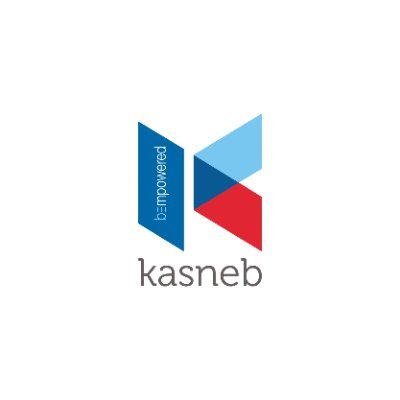If you are considering a career in accounting or finance in Kenya, KASNEB courses are a great way to get started or level up your skills.
KASNEB, the Kenya Accountants and Secretaries National Examinations Board, offers a range of professional courses for anyone looking to build a career in finance, accounting, or management.
This guide’ll explain the different KASNEB courses, their benefits, and their costs. We’ll also give you the lowdown on the requirements so you can decide if you’re ready to take the plunge.
Table of contents
KASNEB
KASNEB is a government organization in Kenya that specializes in accounting, finance, and related fields. It was started in 1969 and has been helping people get certified in these areas ever since.
KASNEB is responsible for creating exams, training people, and certifying professionals in accounting, finance, fraud investigation, credit management, and more. It also ensures that these certifications are recognized in Kenya and worldwide.
So, if you want to become a certified accountant or financial expert in Kenya, KASNEB is the place to be!
Read: TVET Courses in Kenya | Requirements and Fees
What does Kasneb deal with?
KASNEB primarily sets standards and qualifications in accounting and finance. It also creates and manages a variety of courses that help people gain the skills needed for these industries.
One of their primary roles is developing syllabuses for different programs. This means they decide what subjects should be taught and what knowledge is necessary for students to succeed. KASNEB also conducts exams to assess whether students have mastered the material.
When you pass these exams, you earn certifications showing you are qualified in accountancy, finance, governance, and management.
In addition, KASNEB promotes its qualifications not just in Kenya but also internationally, helping students find jobs beyond borders. They also work closely with educational institutions to ensure these schools meet quality standards so you know you’re getting a good education.
KASNEB courses
Here’s all to know about KASNEB courses and qualifications:
1. Certificate Qualification
Certificate in Accounting and Management Skills
One of the KASNEB courses you can explore is the Certificate in Accounting and Management Skills, often called CAMS. You need at least a KCSE mean grade of D or a vocational certificate to get in.
This course is designed to help you kickstart your career in accounting and management. It takes about a year to complete and is divided into two levels.
In Level One, you’ll learn about entrepreneurship, law and ethics, basic ICT skills, and business math. Level Two covers the foundations of accounting, taxation elements, and marketing and communication principles.
It’s perfect for anyone looking to work as an entry-level accounting or management professional!
2. Diploma Qualifications
Accounting Technicians Diploma (ATD)
The Accounting Technicians Diploma is for those who want to build a solid foundation in accounting. It covers essential skills for entry-level accounting jobs, like bookkeeping and financial reporting.
Diploma in Computer Networks and Systems Administration (DCNSA)
If you’re interested in IT, the Diploma in Computer Networks and Systems Administration teaches you how to manage and maintain computer networks. You’ll learn about systems administration, network security, and troubleshooting.
Diploma In Data Management And Analytics (DDMA)
The Diploma in Data Management and Analytics is perfect for anyone who loves working with data. You’ll learn to collect, analyze, and interpret data to help businesses make informed decisions.
Diploma in Quality Management (DQM)
The Diploma in Quality Management ensures products and services meet specific standards. You’ll learn about quality control techniques, quality assurance, and how to improve organizational processes.
3. Professional Qualifications
Certified Public Accountants (CPA)
The CPA course is for aspiring accountants who want to achieve professional status. It covers key topics like financial accounting, auditing, and taxation, preparing you for a successful career in accounting.
Certified Secretaries (CS)
The CS course is perfect for those looking to excel in administrative roles. You’ll learn about corporate governance, office management, and legal matters, making you a valuable asset in any organization.
Certified Credit Professionals (CCP)
If you’re interested in finance, the CCP course focuses on credit management. You’ll gain skills in assessing credit risk, managing credit portfolios, and understanding lending practices in the financial sector.
Certified Investment and Financial Analysts (CIFA)
The CIFA course is designed for those who want to specialize in investments. You’ll learn how to analyze financial markets, evaluate investment opportunities, and provide sound financial advice to clients.
Certified Information Systems Solutions Expert (CISSE)
For tech enthusiasts, the CISSE course prepares you for a career in IT solutions. You’ll study areas like systems development, IT project management, and cybersecurity to become an expert in information systems.
Certified Quality Professional (CQP)
The CQP course focuses on quality management principles. You’ll learn about quality assurance, process improvement, and how to implement quality systems in organizations to enhance performance.
Also, read: 50+ Most Marketable Courses in Kenya | 2024
3. Post- Professional Qualification
Certified Forensic Fraud Examiner
The CFFE course is perfect for those who want to dive into the world of financial fraud investigations. You’ll learn to detect and prevent fraud, analyze risks, and conduct thorough investigations.
The course consists of three modules, each lasting about three months, and includes workshops to apply what you’ve learned. With exams held three times a year, you can complete this course in about a year!
Certified Public Finance Manager
The CPFM course is tailored for individuals looking to excel in public sector finance. You’ll cover essential topics like budget control, public financial management, and auditing.
The course is divided into two modules, plus an integrated case study to give you practical experience. Designed to be completed in a year, this course prepares you for impactful roles in public financial management.
What is the duration of Kasneb?
KASNEB offers various programs, each with its duration. Diploma courses typically last two years, while professional qualifications generally take about three years, allowing for additional time for internship or practical experience.
Post-professional courses, like the Certified Forensic Fraud Examiner and Certified Public Finance Manager, can usually be completed within one year.
KASNEB requirements
When you’re looking into KASNEB qualifications or KASNEB course requirements, here’s a simple breakdown of the requirements:
- Certificate Qualification: To get into the certificate program, you need a minimum KCSE mean grade of D or an equivalent qualification, like a vocational certificate.
- Diploma Qualification: For diploma courses, the bar is a bit higher. You’ll need at least a KCSE mean grade of C-, or an IGCSE mean grade of D, or a certificate in Accounting and Management Skills. You can also qualify with any KASNEB technician or diploma examination certificate.
- Professional Qualification: If you aim for professional courses, you’ll need a KCSE mean grade of C+ or the Kenya Advanced Certificate of Education with at least two principal passes. Plus, you should have credits in Mathematics and English at the Kenya Certificate of Education level or equivalent. You can also use a KASNEB technician, diploma, professional examination certificate, a degree from a recognized university, or an IGCSE mean grade of C in six papers.
- Post-Professional Qualification: Finally, for post-professional qualifications, you’ll need a KASNEB professional qualification or a bachelor’s degree from a recognized university, or any other qualification that is considered equivalent.
Read Also: Karatina University Courses and Fees Structure | 2024
How much is Kasneb?
The KASNEB fee structure includes several charges, such as registration fees, annual renewal fees, and reactivation fees for those who may have inactive registrations. Here’s a simple breakdown of the fees:
Registration Fees
- Vocational Certificate: KSh 2,000 / USD 35
- Certificate Exams (CAMS): KSh 3,500 / USD 60
- Diploma Exams (ATD, DDMA, DCNSA): KSh 6,000 / USD 100
- Professional Exams (CPA, CS, CIFA, CCP, CISSE): KSh 7,500 / USD 125
- Post-Professional (CFFE 1): KSh 10,000 / USD 170
- Foreign Qualifications: KSh 40,000 / USD 665
Annual Registration Renewal Fees (Due by 1st July)
- Vocational Certificate: KSh 1,000 / USD 18
- Certificate Exams (CAMS): KSh 1,200 / USD 20
- Diploma Exams: KSh 1,600 / USD 30
- Professional Exams: KSh 2,000 / USD 35
- Post-Professional (CFFE 1): KSh 2,500 / USD 43
- Foreign Qualifications: KSh 20,000 / USD 335
Registration Reactivation Fees
- Vocational Certificate: KSh 1,500 / USD 25
- Certificate Exams (CAMS): KSh 2,000 / USD 35
- Diploma Exams: KSh 3,000 / USD 50
- Professional Exams: KSh 4,000 / USD 65
- Post-Professional (CFFE 1): KSh 5,000 / USD 85
- Foreign Qualifications: KSh 15,000 / USD 250
These fees cover the initial registration and subsequent annual renewal. Under KASNEB’s policies, they are non-refundable but transferable within 30 days.
How do I pay for Kasneb?
To pay for KASNEB services, all students and stakeholders must use the eCitizen Paybill Number 222222.
Log onto the KASNEB website, access the student portal, and initiate your registration or exam booking transactions.
FAQs
KASNEB stands for the Kenya Accountants and Secretaries National Examinations Board, overseeing professional qualifications.
ATD stands for Accounting Technicians Diploma in KASNEB.
Customer Service Email: info@kasneb.or.ke.
For any complaints Email: Complaints@kasneb.or.ke.
Customer Feedback Email: customerfeedback@kasneb.or.ke.
Report corruption Email: integrity@kasneb.or.ke.
For certificate requests: certificates@kasneb.or.ke.
Request for Access to Information: request@kasneb.or.ke.
Conclusion
Understanding KASNEB courses’ requirements and fee structure is essential for your educational journey.
Whether you’re aiming for a certificate, diploma, or professional qualification, knowing what to expect helps you plan better. So, take the time to review these details and get ready to achieve your goals confidently!
References
- kasneb.or.ke – Requirements for Registration
- kasneb.or.ke – KASNEB fees structure
- kasneb.or.ke – KASNEB qulaifications






